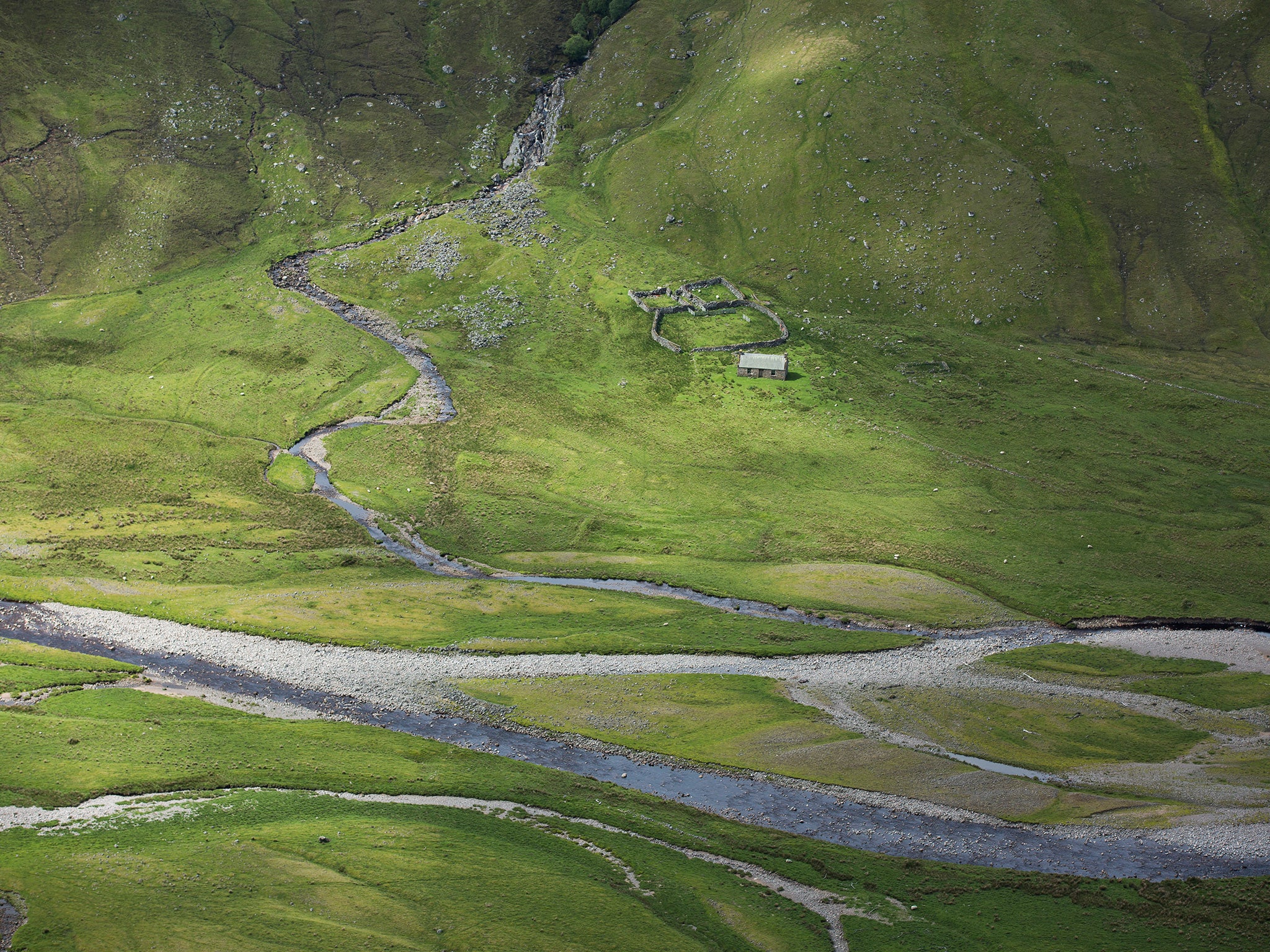Scottish land reform: SNP find history hard to overcome
The SNP have been accused of being 'too timid' on property rules

It is now over 40 years since the 7:84 theatre company took to the stage to remind Scotland that the landlords of their glens were still likely to be ruling-class absentee owners. And as one of the songs in The Cheviot, the Stag and Black, Black Oil warned, anyone trying change that history would face powerful resistance.
The revived Holyrood parliament and the successful resurrection of nationalism and independence has again put land reform centre stage. The SNP leader, Nicola Sturgeon, recently promised : “Scotland's land must be an asset that benefits the many, not the few”.
For a country where 50 percent of the land is owned by less than 450 people, the Scottish government’s land reform plans have been marketed as a political match for the spirit of the 7:84 script. The days of “We are the men who rule your glen” were expected to end.
The SNP’s promised land reform bill was rumoured to include defined measures for the forced sale of under-used private land, a new regime of penalties for failing landlords, the establishment of a powerful land commission, and new rules on foreign ownership.

Reform campaigners were aligning themselves with anti-colonial movements in Africa and elsewhere, insisting Scotland had to “make links with landless people across the world whose stories resonate with our own.”
When the bill’s draft appeared in June, its reception was mixed. For many academic lawyers, the package was seen as “incredibly vague”; Scottish Land & Estates, the group representing land owners, said there was absence of “certainty and clarity.”
For reform campaigners, the SNP were accused of being “timid” on a range of issues, including absolute buying rights for tenants, no right of acquisition for certain types of land, not doing enough to expose property registered in secretive off-shore tax havens, and of failing to limit ownership.
Although lawyers who advised the Scottish government on the reforms insisted that “good land owners” had nothing to fear, the Scottish press still screamed with headlines that the Duke of Argyll’s castle was now under siege, that the core values of the French Revolution were finally heading over the border, and the Highland Clearances would finally be avenged.
The shop windows of Scotland’s high-end estate agents currently have their own response to the bill. The commercial reality is that Scotland’s land remains an in-demand commodity for the world’s wealthy.
Scores of estates are up for grab in sales pitches that are searched world-wide online, with expensively-produced brochures dispatched to the Middle East, Russia and the United States.
Savills and CKD Galbraith are handling the sale of the 6,500 acre Dalmunzie estate in Glenshee, Perthshire. Those prepared to offer over £4 million will own “a diverse sporting estate with spectacular Highland scenery.” There is a principal 7-bedroom residence, a dower house, 6 other additional cottages, and a game-keepers lodge. Dalmunzie has red deer stalking, grouse shooting, a nine-hole golf course and a tennis court, hill grazing and close to 600 acres of woodland.
For the same price, £4m, Knight Frank are currently offering a three-bedroom mews house in Belgravia. The master bedroom is described as “good sized”.
In comparison with Belgravia, Scotland – even with the threat of land reform – remains bargain-basement cheap for international markets.
Brian Wilson, the former Labour energy minister and long-time campaigner for land reform in his native Scotland, told i : “This [land reform law] was been billed as something dramatic and radical, but in reality it’s the absolute opposite. And unless something happens between now and when it’s presented to the Scottish Parliament next year, unless there is some major transformation before it goes through, my confident prediction is that it won’t shift or redistribute land by one square millimetre.”
Mr Wilson said the bill, by “dancing around” key issues of ownership, had reduced itself to “window dressing”.
Dr Jill Robbie, a law lecturer at the University of Glasgow, was one of a number of leading academics who gave evidence to Holyrood’s rural affairs committee. She said although the bill contained a number of “interesting proposals”, some terms used in the draft were “so vague that it leaves them very difficult to interpret.”
This included the term “sustainable development”. In the initial draft of the bill, if owners are seen as a barrier to such development, land could be transferred by Scottish ministers.
Dr Robbie said she hoped “meat could be put on the bone” because “Good land owners need to know exactly what they are required to do to.”
On transparency of ownership, Dr Robbie said some land owners in Scotland were still able to hide behind old legal structures. However she added : “It is often not who owns Scotland - you can find that out in registers. The different question now is - who is making the decisions behind the scenes, when property is held in trusts or companies off-shore?”
Join our commenting forum
Join thought-provoking conversations, follow other Independent readers and see their replies
Comments
Bookmark popover
Removed from bookmarks